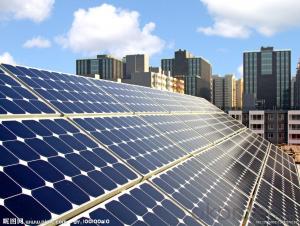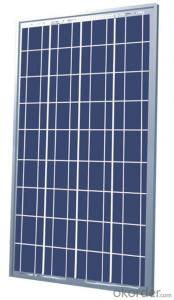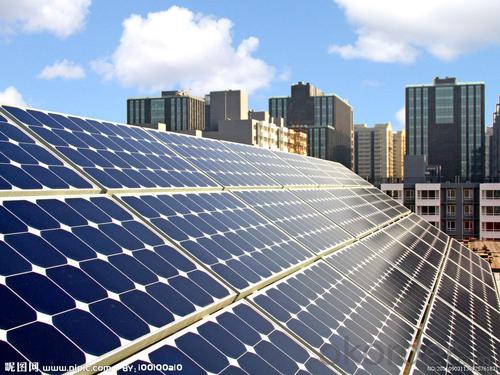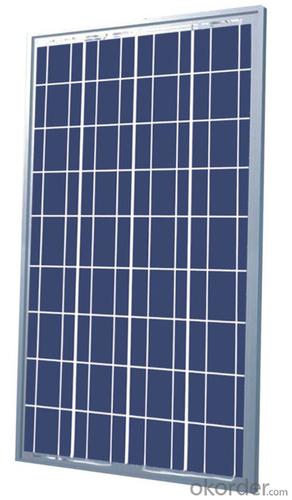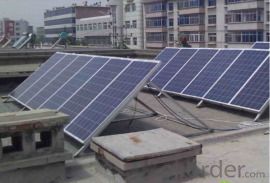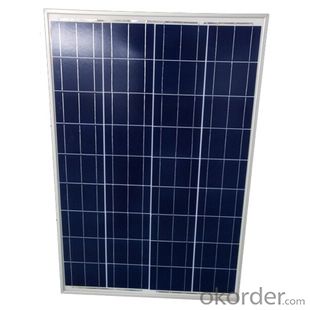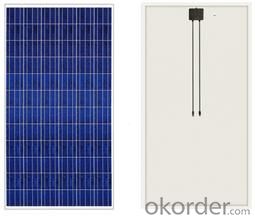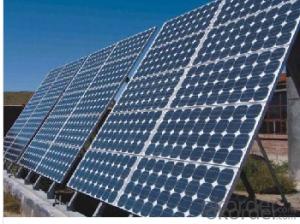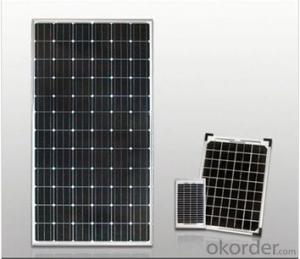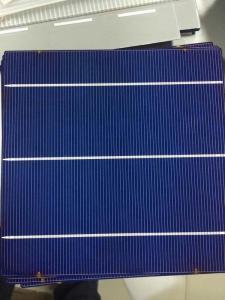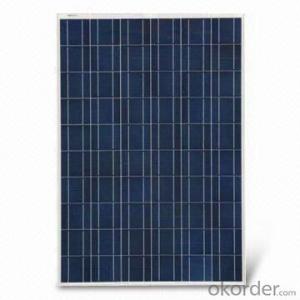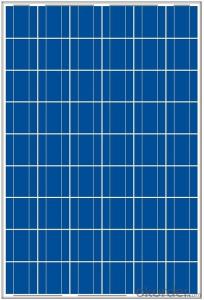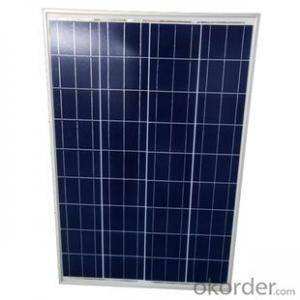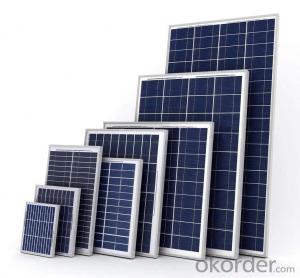Solar Panels in Indiana - Polycrystalline Solar Panels Designed for Pipeline Projects
- Loading Port:
- Shanghai
- Payment Terms:
- TT OR LC
- Min Order Qty:
- 1 pallet
- Supply Capability:
- 10000000 pallet/month
OKorder Service Pledge
OKorder Financial Service
You Might Also Like
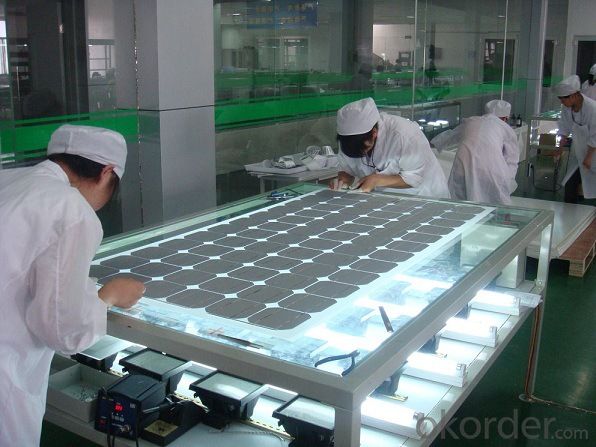
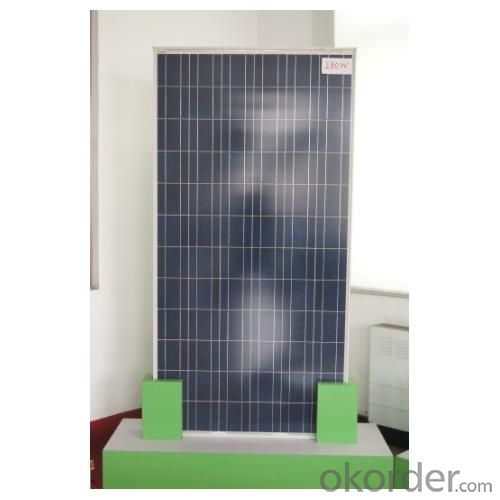
Description:Polycrystalline Solar Panels Designed for Pipeline Projects
Characteristics:
I.Solar Cell : High efficiency crystalline solar cell. Even if under the weak light, the solar module can produce maximum power output.
II.Tempered glass (toughened glass): Anti-reflecting coating and high transmission rate glass increase the power output and mechanical strength of solar module.
III.EVA and TPT: Using high quality EVA and TPT to prevent destroying and water.
IV.AI frame: Without screw, corner connection. 6 holes on the frame can be installed easily.
V.Junction box: Multi function junction box with water proof.
VI.Long lifetime: ≥25 years; Less power decrease.
VII.Good performance of preventing from atrocious weather such as wind and hails.
VIII.Resisting moisture and etching effectively, not effected by geology.
IX.The certificate issued by international authority: UL, TUV, IEC, VDE, CE.
Quality and Safety
1. Rigorous quality control meets the highest international standards.
2. High-transmissivity low-iron tempered glass, strong aluminium frame.
3. Using UV-resistant silicon.
4. IS09001/14001/CE/TUV/UL
Warranties
1. 10 years limited product warranty
2. 15 years at 90% of the minimal rated power output
3. 25 years at 80% of the minimal rated power output
Technical date :
ITEM NO.: | Poly 156*156 cell ,60pcs . Power range from 230Wp-260Wp | ||||||
Maximum Power(W) | 230 | 235 | 240 | 245 | 250 | 255 | 260 |
Optimum Power Voltage(Vmp) | 29.4 | 29.5 | 29.7 | 30.1 | 30.3 | 30.5 | 30.7 |
Optimum Operatige Current(Imp) | 7.83 | 7.97 | 8.08 | 8.14 | 8.25 | 8.37 | 8.48 |
Open Circuit Voltage(Voc) | 36.7 | 36.8 | 36.9 | 37.1 | 37.3 | 37.5 | 37.7 |
Short Circuit Current(Isc) | 8.52 | 8.59 | 8.62 | 8.65 | 8.69 | 8.73 | 8.78 |
Solar Cell: | 156*156 Poly | ||||||
Number of Cell(pcs) | 6*10 | ||||||
Brand Name of Solar Cells | JA Cell, Bluesun Cell | ||||||
Size of Module(mm) | 1650*992*40/45/50 | ||||||
Cable & Connector Type | Pass the TUV Certificate | ||||||
Frame(Material Corners,etc.) | Aluminium-alloy | ||||||
Back sheet | TPT | ||||||
Weight Per Piece(KG) | 19.5KG | ||||||
FF (%) | 70-76% | ||||||
Junction Box Type | Pass the TUV Certificate | ||||||
Tolerance Wattage(e.g.+/-5%) | ±3%, or 0-3% | ||||||
Front Glass Thickness(mm) | 3.2 | ||||||
Temperature Coefficients of Isc(%) | +0.04 | ||||||
Temperature Coefficients of Voc(%) | -0.38 | ||||||
Temperature Coefficients of Pm(%) | -0.47 | ||||||
Temperature Coefficients of Im(%) | +0.04 | ||||||
Temperature Coefficients of Vm(%) | -0.38 | ||||||
Temperature Range | -40°C to +85°C | ||||||
Surface Maximum Load Capacity | 5400Pa | ||||||
Allowable Hail Load | 23m/s ,7.53g | ||||||
Bypass Diode Rating(A) | 12 | ||||||
Warranty | 90% of 10 years, 80% of 25 years. | ||||||
Standard Test Conditions | AM1.5 1000W/ 25 +/-2°C | ||||||
Packing | carton or pallet | ||||||
1*20' | 14 Pallets / 316pcs | ||||||
1*40'STD | 25 Pallets / 700pcs | ||||||
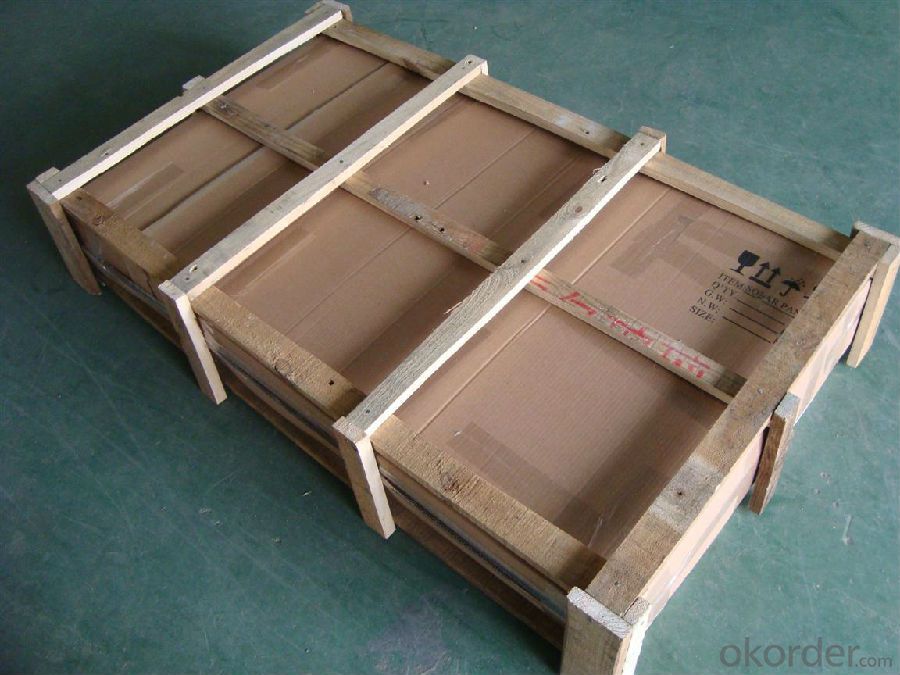
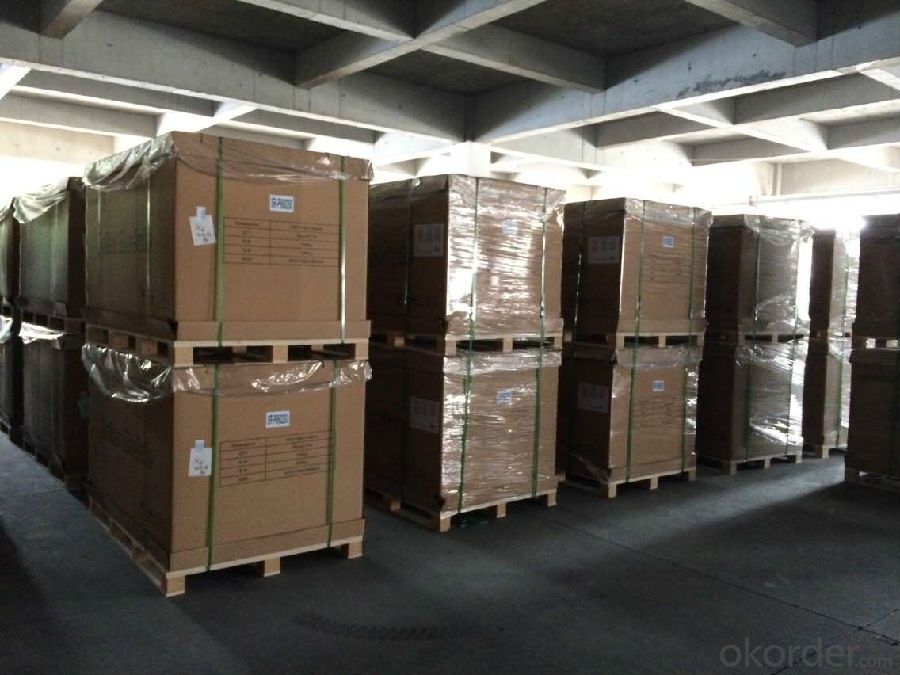
FAQ
I..Will you focus on the safety of the goods during transportation?
Yes, Safety of the cargo is the primary element that we would consider on transportation.
II..How would guarantee the quality will meet the requirements of your clients?
Before shipment, we will have inspection for each batch of goods.
III..What certificates do you have?
IEC,UL,TUV,CSA,etc.
IV..Can you do OEM according to clients’ requirements?
Yes, we have our own brand while we can provide OEM service.
- Q: Are there any fire risks associated with solar panels?
- Yes, there are fire risks associated with solar panels, although they are relatively rare. The main risk factors include faulty installation, damaged wiring, and electrical malfunctions. However, adherence to proper installation standards, regular maintenance, and the use of high-quality equipment significantly mitigate these risks.
- Q: I have a home in Manchester Tn and we have been slowly remodeling the home. It is about 200 sq ft of living space. Our normal electric bill is about 50 a month. We would like to add some solar panels to the home to help reduce the amount of the bill. How many panels do I need and what would be the cost? I am not trying to go completely of the grid but I would like to start somewhere and maybe over the years be able to add. What is your recommendation for a reasonable cost of under 2 to 3 k??
- image voltaic panels can set you back as much as $20,000. A windmill that produces sufficient electrical energy for the abode would be approximately $0,000. Neither gets you off the electrical powered grid. image voltaic in basic terms works while the sunlight shines. At night, you will have not have been given any electrical energy. Wind in basic terms works while the wind blows on the merely right velocity. decrease than 5 mph and you get no capability. If the wind blows too speedy on your windmill, it is going to close right down to maintain from being broken. look to insulation, capability valuable doors and abode windows, an capability valuable air conditioner, landscaping that aspects shade.
- Q: Can solar panels be installed on south-facing windows?
- Yes, solar panels can be installed on south-facing windows as long as the windows receive sufficient sunlight throughout the day.
- Q: I have an electric bicycle that I travel to work by, pulling a modified child carrying trailer that holds two 2 volt deep cycle batteries in series to power the 24 volt bike motor. I'm thinking about adding a 50 watt solar panel (or larger depending on the room I can make available) to charge while I'm at work and to provide some extra juice while on my more distant travels.Can I get a solar panel to charge them while they're connected the way they are: in series? Does charging work that way?I've read that in order to charge the 24 volt battery setup (if the answer to the Q above is yes), the output from my solar panel would need to be a little more than 24 volts. Is this true? If so, how many volts?Since the bike is supposed to be powered at 24 volts and I have an x-volt (x gt; 24v) solar panel connected to it, will this cause any damage to the controller or other components while running them?Will it help supply power even while the motor is being run?Thanks.
- Charging voltage = 2*3.8 = 27.6V Current regulated to AH rating divided by 0 Charging time = 0 hours
- Q: Can solar panels be used in commercial buildings or industrial settings?
- Yes, solar panels can be used in commercial buildings or industrial settings. In fact, they are increasingly being incorporated into such environments to offset energy costs, reduce carbon footprint, and promote sustainability. Solar panels can be installed on rooftops, parking lots, or even as part of building facades to generate clean electricity that can power various operations in commercial or industrial facilities.
- Q: Aren't batteries bad for the environment?Toxic?Expensive? With small solar panels phones, iPod's, laptops other small electronics could be smaller, slimmer, more efficient cost people less to charge every day. Maybe a small battery inside as a backup and to store the Solar energy for night time. But overall, batteries should be optional. So big question:Why aren't electronics being produced with solar panels?
- Yes your right, solar panels (photovoltics) could be used to make electricity for small electronics. Right now solar cells are on many calculators, and even flashlight. But the problem is the lenght of time the cells take to charge the device, verses the power demand. I don;t think the size of the panels, and the amount of time needed to charge the device are practical. One think I have been thinking is that every one should have a photovoltaic panel to charge a battery. Then, use the battery to charge cell phones, MP3 palyers. The panel and the battery could be about the 8 x inches, and could sit in window, or on a dash board to get charged, then used in doors over night to charge devices.
- Q: Can solar panels be installed on a multi-story building?
- Yes, solar panels can be installed on a multi-story building.
- Q: If you buy everything you need for a grid-tied solar set up, can you install it yourself or is it required that a professional installs it?
- Depending okorder /
- Q: My plans are building several solar panels and have a battery bank. I want to be able to power the refriderator and freezer and occationaly an electric grill. How would This work exactly and what would the best way to hook this up to make it work? I want to be able to convert DC to AC. How many batterys would I need to make this work. I know when Civil unrest happens I want to be prepared. How would Wind Power work If I can get the equipment I need?
- lets find out
- Q: I am learning all about heat radiation in Physics. There is a question I am doing about Solar panels. It asks, why do glass covers improve the efficient of solar panels? I dont really understand. How do they?? thanks :D x
- Clear glass will allow most of the electromagnetic energy of sunlight into the air-tight volume of the solar panel. The light strikes the black coated metal tubes and the black coated backing, and is absorbed as heat. Part of this heat will radiate as infrared radiation, and much of this will leave through the glass. But a great deal of it will initially remain in the metal as heat. This heat will be partially transferred to the surrounding air, but because the glass stops the mixing of this air with the rest of the atmosphere, this heat will stay mostly contained within the solar panel. If the glass were not there, there would be a huge loss of heat into the surrounding air.
Send your message to us
Solar Panels in Indiana - Polycrystalline Solar Panels Designed for Pipeline Projects
- Loading Port:
- Shanghai
- Payment Terms:
- TT OR LC
- Min Order Qty:
- 1 pallet
- Supply Capability:
- 10000000 pallet/month
OKorder Service Pledge
OKorder Financial Service
Similar products
Hot products
Hot Searches
Related keywords
